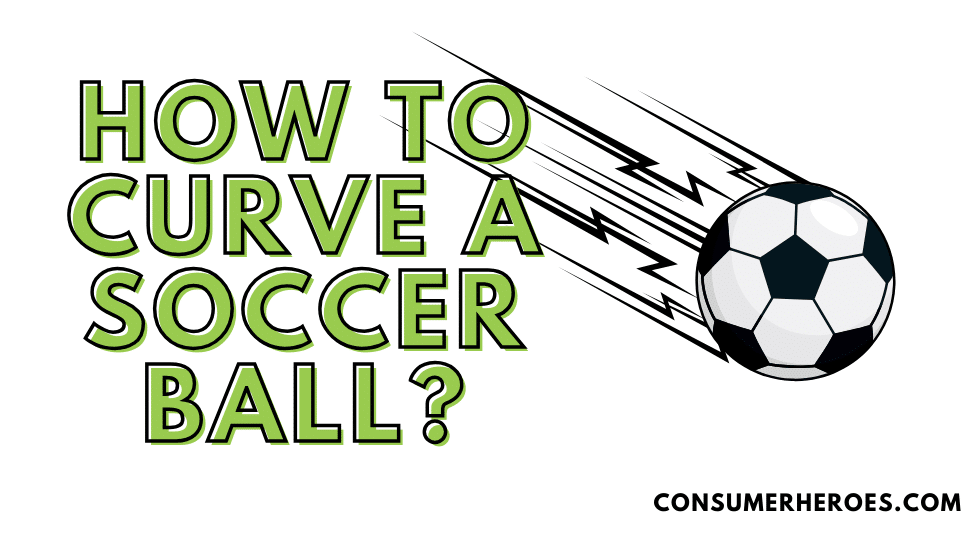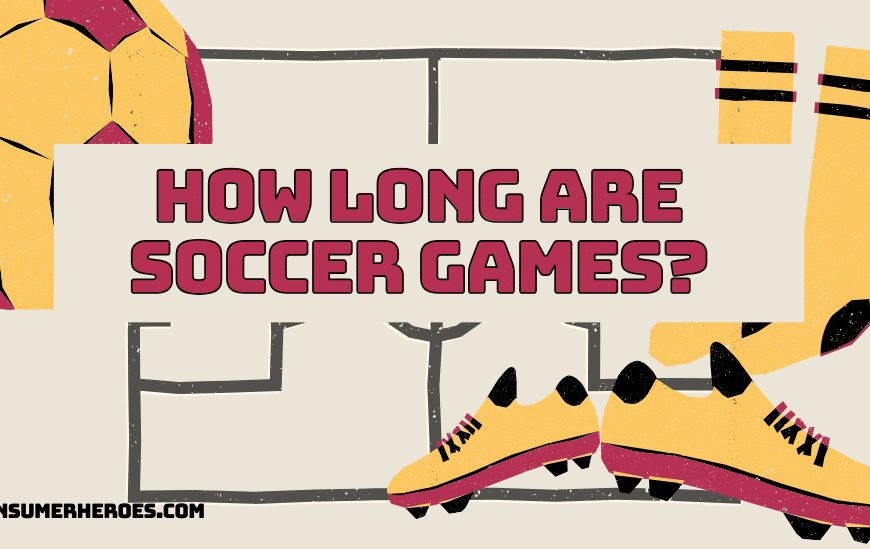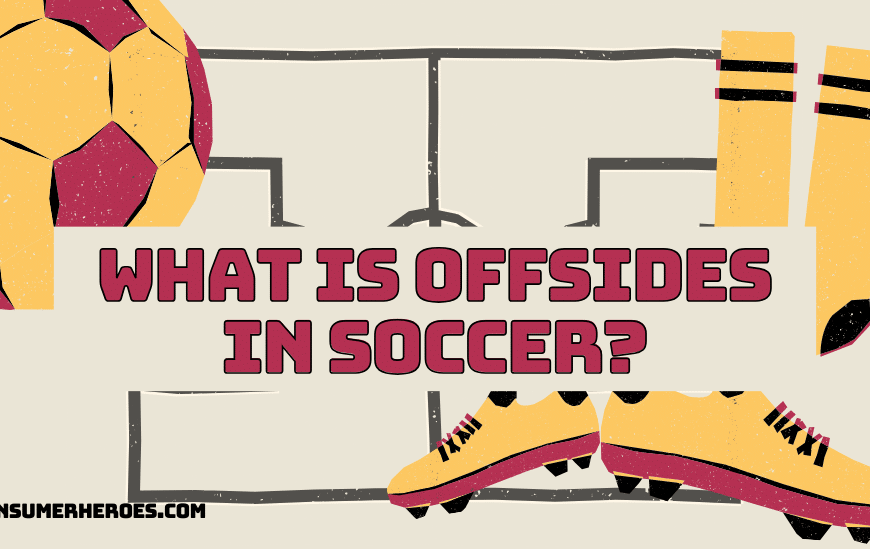Soccer is a popular sport worldwide, with millions of players participating at different levels. Whether you are a beginner or an experienced player, there is always room for improvement. Improving your skills in soccer requires practice, dedication, and a willingness to learn.
To get better at soccer, it is important to start with the basics. This includes learning how to control the ball with your feet, improving your passing accuracy, and developing your shooting skills. Practicing these fundamental skills regularly can help you become a more well-rounded player.
In addition to practicing the basics, it is also important to work on your physical fitness. Soccer is a physically demanding sport that requires endurance, speed, and agility. Incorporating strength and conditioning exercises into your training routine can help you build the necessary physical attributes to perform at your best on the field.
Understanding Soccer Basics
Soccer, also known as football in many countries, is a popular sport played by millions of people around the world. To get better at soccer, it is important to understand the basic rules and skills involved in the game.
The Objective of the Game
The objective of soccer is simple: to score more goals than the opposing team. Each team has 11 players on the field, including a goalkeeper who is the only player allowed to use their hands or arms within the penalty area. The game is played in two 45-minute halves, with a 15-minute halftime break.
Basic Skills
To be a successful soccer player, it is important to have good ball control, passing, shooting, and defending skills. Here are some basic skills to focus on:
- Ball Control: This involves being able to control the ball with your feet, including dribbling, turning, and stopping the ball.
- Passing: Passing the ball accurately and with the right amount of power is essential in soccer. It is important to practice both short and long passes.
- Shooting: Scoring goals is the ultimate objective of soccer, so it is important to have good shooting skills. This includes being able to shoot accurately with both feet.
- Defending: Defending involves stopping the opposing team from scoring by intercepting passes, making tackles, and blocking shots.
Rules of the Game
Soccer has many rules, some of which are more complex than others. Here are some basic rules to keep in mind:
- Offside: A player is offside if they are closer to the opponent’s goal than the ball and the second-last defender when the ball is passed to them.
- Fouls: Fouls include tripping, pushing, and handling the ball with your hands or arms (except for the goalkeeper within the penalty area).
- Yellow and Red Cards: Referees can issue yellow cards for minor fouls and red cards for more serious offenses. A player who receives two yellow cards or one red card is sent off the field.
By understanding the basics of soccer, players can improve their skills and knowledge of the game. Practice, dedication, and a love for the sport are essential for success in soccer.
Mastering Soccer Skills
To become a great soccer player, one must master various skills. Here are some essential skills that every soccer player should focus on:
Dribbling
Dribbling is one of the most crucial skills in soccer. It involves moving the ball with your feet while maintaining control. To improve dribbling skills, players should practice with cones, dribble around obstacles, and work on changing direction quickly.
Passing
Passing is another essential skill in soccer. It involves moving the ball to a teammate accurately. To improve passing skills, players should practice passing drills with a partner or a team. They should also work on different types of passes, such as short passes, long passes, and through balls.
Shooting
Shooting is the skill of kicking the ball towards the goal. To become an effective shooter, players should practice different types of shots, such as the instep shot, the side-foot shot, and the chip shot. They should also work on accuracy and power.
Defending
Defending is the skill of preventing the opposing team from scoring. To improve defensive skills, players should practice tackling, blocking, and intercepting the ball. They should also work on positioning and communication with their teammates.
Goalkeeping
Goalkeeping is the skill of protecting the goal and preventing the opposing team from scoring. To become an effective goalkeeper, players should practice diving, catching, and punching the ball. They should also work on positioning, communication, and decision-making skills.
By mastering these essential skills, soccer players can become well-rounded and effective on the field. With practice and dedication, players can improve their skills and become better soccer players.
Improving Physical Fitness
Improving physical fitness is a crucial aspect of becoming a better soccer player. Players need to be able to run for long periods of time, have explosive strength, and be flexible to avoid injuries. Here are some ways to improve your physical fitness for soccer:
Endurance Training
Endurance training is essential for soccer players to improve their cardiovascular fitness. It helps players to run for longer periods of time without getting tired. Endurance training can be done in many ways, including running, cycling, swimming, and other aerobic exercises. A few tips for endurance training include:
- Start with shorter runs and gradually increase the distance over time.
- Mix up the type of exercise to avoid boredom and to challenge different muscle groups.
- Incorporate interval training to improve speed and endurance.
Strength Training
Strength training is important for soccer players to improve their power and explosiveness. It helps players to jump higher, run faster, and tackle harder. Strength training can be done using weights, resistance bands, or bodyweight exercises. A few tips for strength training include:
- Focus on compound exercises that work multiple muscle groups at once.
- Use progressive overload to gradually increase the weight or resistance.
- Allow for adequate rest and recovery time between workouts.
Flexibility Training
Flexibility training is crucial for soccer players to prevent injuries and improve range of motion. It helps players to move more freely and avoid muscle strains and sprains. Flexibility training can be done using stretching exercises, yoga, or Pilates. A few tips for flexibility training include:
- Stretch after every workout or practice.
- Hold each stretch for at least 30 seconds.
- Do not bounce or force the stretch beyond your comfort level.
By incorporating endurance, strength, and flexibility training into their routine, soccer players can improve their physical fitness and become better players on the field.
Developing Soccer Tactics
Positioning
One of the most important aspects of soccer is positioning. Players must be aware of their position on the field at all times and how it relates to their teammates and opponents. Good positioning allows players to be in the right place at the right time to make a play or intercept a pass.
To develop good positioning skills, players should practice reading the game and anticipating where the ball will go next. They should also focus on maintaining proper spacing with their teammates and staying in their assigned position on the field.
Team Play
Soccer is a team sport, and players must work together to achieve success. Developing good team play tactics is crucial for success on the field. Players should focus on communicating with their teammates and understanding each other’s strengths and weaknesses.
To develop good team play, players should practice passing and moving off the ball. They should also focus on supporting their teammates and making themselves available for passes.
Game Strategy
Game strategy is another important aspect of soccer tactics. Coaches and players must develop a game plan that takes into account the strengths and weaknesses of their opponents. This includes developing tactics for attacking and defending, as well as making adjustments during the game as necessary.
To develop good game strategy, players should study their opponents and develop a plan that takes advantage of their weaknesses. They should also focus on executing the plan and making adjustments as necessary during the game.
Overall, developing soccer tactics is crucial for success on the field. Players must focus on positioning, team play, and game strategy to achieve success. With practice and dedication, players can develop the skills necessary to become top performers on the field.
Maintaining Mental Strength
To become a better soccer player, it is not enough to just focus on physical training. Mental strength is also crucial to succeed in the sport. Here are some tips to help improve concentration, confidence, and resilience on and off the field.
Concentration
Concentration is key in any sport, and soccer is no exception. It is important to stay focused and alert during the game to make quick decisions and react to changing situations. Here are some ways to improve concentration:
- Practice mindfulness and meditation to improve focus and reduce distractions.
- Set specific goals before each game or practice to help maintain focus.
- Avoid distractions such as checking phones or talking to others during training or games.
Confidence
Confidence is essential to perform well in soccer. A lack of confidence can lead to hesitation and mistakes on the field. Here are some ways to boost confidence:
- Focus on strengths and past successes to build confidence.
- Visualize success and positive outcomes before games or practices.
- Encourage positive self-talk and avoid negative self-criticism.
Resilience
Soccer can be a challenging sport, and it is important to be able to bounce back from setbacks and failures. Resilience is the ability to recover from adversity and keep pushing forward. Here are some ways to improve resilience:
- Learn from mistakes and use them as opportunities to improve.
- Focus on controllable factors, such as effort and attitude, rather than outcomes.
- Surround yourself with supportive teammates and coaches to help overcome challenges.
By maintaining mental strength through improved concentration, confidence, and resilience, soccer players can reach their full potential on and off the field.
Practicing Regularly
To become a better soccer player, one must practice regularly. Regular practice not only improves skills but also builds stamina and endurance. Here are some tips on how to practice effectively:
Set Goals
Before starting a practice session, it is essential to set goals. Goals should be specific, measurable, and achievable. For example, a player may set a goal to improve their dribbling skills by completing a certain number of drills within a specific time frame.
Focus on Weaknesses
Identifying weaknesses and working on them is crucial to improving as a soccer player. For instance, if a player struggles with passing accuracy, they should focus on drills that target passing skills.
Mix It Up
Practicing the same drills repeatedly can become monotonous and hinder progress. It is essential to mix up the drills and exercises to keep practice sessions engaging and challenging.
Practice with a Purpose
Practicing with a purpose means being present and focused during the session. It is essential to avoid distractions and give full attention to the drills and exercises.
Get Feedback
Getting feedback from coaches or teammates can provide valuable insight into areas that need improvement. It is essential to listen to constructive criticism and work on making necessary changes.
In conclusion, practicing regularly is essential to becoming a better soccer player. By setting goals, focusing on weaknesses, mixing up drills, practicing with a purpose, and getting feedback, players can improve their skills and reach their full potential.
Learning from Others
Learning from others is an essential part of improving in soccer. There are many ways to do this, but two of the most effective methods are watching professional games and getting a coach.
Watching Professional Games
Watching professional games is a great way to learn from some of the best players in the world. By observing their techniques and strategies, you can gain valuable insights into how to improve your own game. Here are some tips for getting the most out of watching professional games:
- Focus on the player you want to learn from: Don’t just watch the game as a whole. Instead, focus on a specific player whose skills you want to emulate.
- Take notes: Write down what you observe, including any techniques or strategies that you think could be useful.
- Analyze the game: After the game is over, analyze what you saw. Try to identify patterns and strategies that the players used, and think about how you can incorporate them into your own game.
Getting a Coach
Another effective way to learn from others is to get a coach. A good coach can help you identify your strengths and weaknesses, and develop a training plan that is tailored to your specific needs. Here are some tips for finding a good coach:
- Look for experience: Look for a coach who has experience working with players at your level.
- Check references: Ask for references from other players who have worked with the coach.
- Communicate effectively: Make sure you communicate your goals and expectations clearly to the coach.
Overall, learning from others is an important part of improving in soccer. Whether you choose to watch professional games or get a coach, be sure to stay focused, take notes, and analyze what you observe. With practice and dedication, you can become a better player and achieve your goals on the field.
Using Soccer Equipment Properly
To get better at soccer, it’s important to use the right equipment and use it properly. Here are some tips:
Shoes
Soccer shoes are designed to provide traction and support on the field. It’s important to wear shoes that fit properly and are comfortable. Here are some things to consider:
- Look for shoes with studs or cleats on the sole. The type of studs you need depends on the type of field you’re playing on. Soft ground requires longer studs, while firm ground requires shorter studs.
- Make sure the shoes fit snugly but not too tight. You should be able to wiggle your toes, but your heel should not slip out of the shoe.
- Break in new shoes before playing in them. Wear them around the house or to practice before using them in a game.
Ball
The soccer ball is the most important piece of equipment. It’s important to use a ball that is the right size and weight for your age and skill level. Here are some tips:
- Use a size 5 ball if you’re over the age of 12. Younger players should use smaller balls.
- Look for a ball that is made of high-quality materials and is durable.
- Practice controlling the ball with different parts of your body, such as your feet, thighs, and chest.
Shin Guards
Shin guards protect your legs from injury. It’s important to wear shin guards that fit properly and are comfortable. Here are some tips:
- Look for shin guards that cover your entire shin and fit snugly.
- Make sure the shin guards are not too tight, as this can restrict circulation and cause discomfort.
- Wear the shin guards under your socks.
By using soccer equipment properly, you can improve your performance on the field and reduce your risk of injury.
Staying Motivated
Staying motivated is crucial for any athlete who wants to improve their skills. Soccer players are no exception. Here are a few tips to help players stay motivated:
Set Goals
Setting goals is a great way to stay motivated. Players can set both short-term and long-term goals. Short-term goals can be achieved within a few weeks or months, while long-term goals may take years to achieve. Goals should be specific, measurable, and achievable. For example, a short-term goal could be to improve dribbling skills by practicing for 30 minutes every day for the next two weeks.
Track Progress
Tracking progress is another great way to stay motivated. Players can use a notebook or a mobile app to track their progress. They can record their goals, practice sessions, and games. They can also track their performance metrics such as number of successful passes, number of goals scored, and distance covered. By tracking progress, players can see how far they have come and how much they have improved.
Stay Positive
Staying positive is essential for staying motivated. Players should focus on their strengths and achievements, rather than their weaknesses and failures. They should also surround themselves with positive people who support and encourage them. Positive self-talk can also be helpful. Players can repeat positive affirmations such as “I am a skilled soccer player” or “I can achieve my goals.”
Take Breaks
Taking breaks is important for avoiding burnout and staying motivated. Players should take regular breaks during practice sessions and games. They should also take days off to rest and recover. During breaks, players can engage in other activities that they enjoy such as reading, listening to music, or spending time with friends and family.
Conclusion
Staying motivated is crucial for soccer players who want to improve their skills. By setting goals, tracking progress, staying positive, and taking breaks, players can stay motivated and achieve their goals.







